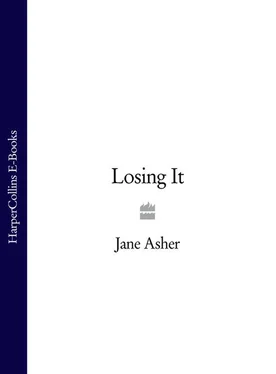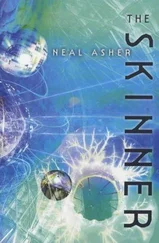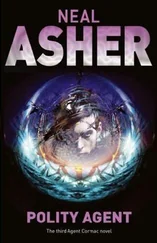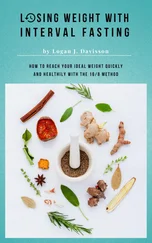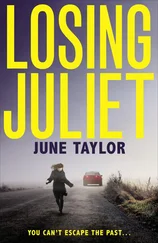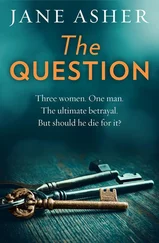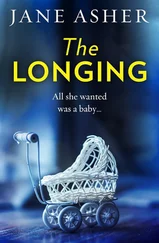For Rory
Cover
Title Page
Dedication
Now
Judy
Then
Judy
Stacey
Charlie
Judy
Stacey
Charlie
Stacey
Ben
Judy
Crystal
Charlie
Sally
Charlie
Stacey
Charlie
Ben
Sally
Crystal
Stacey
Charlie
Stacey
Ben
Judy
Crystal
Stacey
Judy
Charlie
Stacey
Charlie
Next
Sally
Charlie
Ben
Judy
Stacey
Charlie
Crystal
Ben
Stacey
Charlie
Crystal
Stacey (e-mail)
Sally
Charlie
Judy
Charlie
Stacey
Sally
Charlie
Sally
Stacey (e-mail)
Charlie
Chipstead
Judy
Charlie
Stacey
Charlie
Chipstead
Crystal
Judy
Ben
Stacey
Chipstead
Charlie
Judy
Stacey
Chipstead
Charlie
Judy
Stacey
Crystal
Stacey
Charlie
Stacey
Charlie
Now
Judy
Keep Reading
Acknowledgements
About the Author
Praise
Copyright
About the Publisher
Now
I couldn’t move. That was the problem.
I wanted to be quick so I’d decided to take the direct route, rather than going by the back streets. It’s quite a bit longer by the back way, of course, but it does mean I avoid passing – what shall I call it – the scene of the crime? Hardly.
As soon as I saw that neon sign shining out across the wet pavement I knew I’d been crazy to attempt it and I stopped dead in sudden misery. I’d done it before in daylight, forcing myself to look away to the other side of the road as I approached the dreaded place-I-can’t-name. I even enjoyed the test sometimes: seeing just how much or how little it took to trigger me into going back over it all; watching myself almost disinterestedly for signs of hysteria, regret or anger.
But this was different. I hadn’t realised how strongly it would make its presence felt once darkness had fallen. I turned away quickly as the old panic began to churn in my stomach, and I looked back towards the way I had come and took deep breaths in an attempt to calm myself down enough to be able to walk on again.
I was outside the post office, and, as usual, there was a pitiful little huddle of swaddled figures in the doorway beside me. Poor things, they looked more like heaps of old clothes than ever. I pulled off a glove and fumbled in my bag for some change, grateful for the excuse to stand still a little longer. I found a fifty-pence piece and threw it into the battered box they’d put out on the pavement; if they used it for Special Brew or whatever then good luck to them. I felt desperately in need of a drink myself.
I didn’t get a thank you of any kind, mind you. Not even a grunt this time. I tried not to feel irritated: the joy is in the giving, and all that. But it did make me hesitate for a moment – whether because I was seriously considering admonishing them or because it was still part of my effort to delay moving on again I really can’t say. I’m prepared to find my subconscious capable of plotting just about anything these days: it’s taken me by surprise so many times over the last year or so while it’s been dealing with the unthinkable. Giving me an excuse to avoid facing the painful reminder just a few yards ahead of me would be simple – only sensible, in fact: no point in giving my poor old brain the opportunity for another sand papering unless it had to.
I did move on, though. The moment of panic had passed and the cold wind and thoughts of the as yet uncooked casserole were enough of a spur to encourage me to walk on towards Dixons.
As I came nearer to passing the – how can I describe it? – supermarket sounds too cosy and everyday for the place that can still make my heart beat faster in remembered anxiety. Anyway, as I came closer I felt braver, and, without any intention of going in (that would be one test too many, even for my reconstructed self), I stopped outside. I tortured myself for a few moments as I looked through the large plate-glass window and searched quickly for what I half-dreaded and half-wanted to see. Funny, I thought, that here I am, looking with the same eyes, standing on the same legs, wearing – and I glanced down at myself – yes, even wearing the same coat as I did over a year ago, before it all started. So which bits of me have changed? I vaguely wondered. What makes me so utterly different from the woman I used to be, who walked into this wretched place so many times over so many years to do the shopping? Awareness, of course. Memory. Knowledge. Knowing what he did – what the two of them did. Knowing that, even as I pretend to carry on my life as if it still has a point, everything has changed for ever. That, once I’ve completed my pathetic little outing, bought my packet of floppy disks from Dixons and gone home again, he won’t be there. That he never will be again.
Then
He was at home the evening that started it all. If he hadn’t been there, then perhaps – no, I won’t let myself go through all those ifs again. Not any more: that’s over. I know I can’t stop myself replaying it all like an old film, but I do surely have enough strength now to recognise that it can’t be changed.
I can still picture him that evening. Or can I? Perhaps I’m imagining it. Maybe it’s another sign of this bloody crafty subconscious of mine inventing the bits that have got lost. I could be conjuring up an image from any one of the thousands of evenings of our marriage. It wasn’t unusual for Charlie to be home first, and that day didn’t feel any different from hundreds of others before it. Why should it? Nothing signalled that it was to be the start of the end. In fact all that strikes me now about that evening was just how extraordinarily ordinary it was: the way I remember it, it was a masterpiece of uneventful domesticity hiding the horrors to come.
He was sitting reading the paper in the sitting room. And, no, it’s not my imagination: I can see it clearly. He was in the large green armchair on the far side of the fire and I saw his profile silhouetted against the striped wallpaper just before he noticed I was there. He’d already put on his old burgundy cardigan, and he’d loosened his tie and pulled it away from the collar of his blue shirt. (God, it’s fascinating how much I do remember: I suppose, as well as being the opening scene of the impending terrible drama, it was also the last scene of my other life.) He looked up as I came in, and put the paper down in a rustling heap on his lap.
‘Hi,’ he said, then, after a pause, ‘What?’
‘How do you mean?’ I answered, knowing, of course, exactly what he meant. I was quite aware of the hint of weary resignation that I’d allowed to settle onto my features as he greeted me. Although I’ve no idea now which school I’d been inspecting, I do remember I’d had a particularly frustrating and tiring day, but I don’t think there was any other excuse for taking it out on him. It wasn’t as if he didn’t work just as hard as I did – more so, probably.
‘You look tired. Or something.’ Oh, how subtle is the language of the long married! How many layers of subtext lurked dangerously under the innocent words! Why didn’t you say it, Charlie? You, of all people, who were always so good with words in court; how clearly and succinctly you could have put it. ‘You look fed up and resentful. You clearly disapprove of the fact that I am happily relaxing in this chair when you have only just come in from working all day,’ might have been near the mark. But the habit of years allowed us to speak without acknowledging a fraction of what was really being said. What a waste.
Читать дальше
